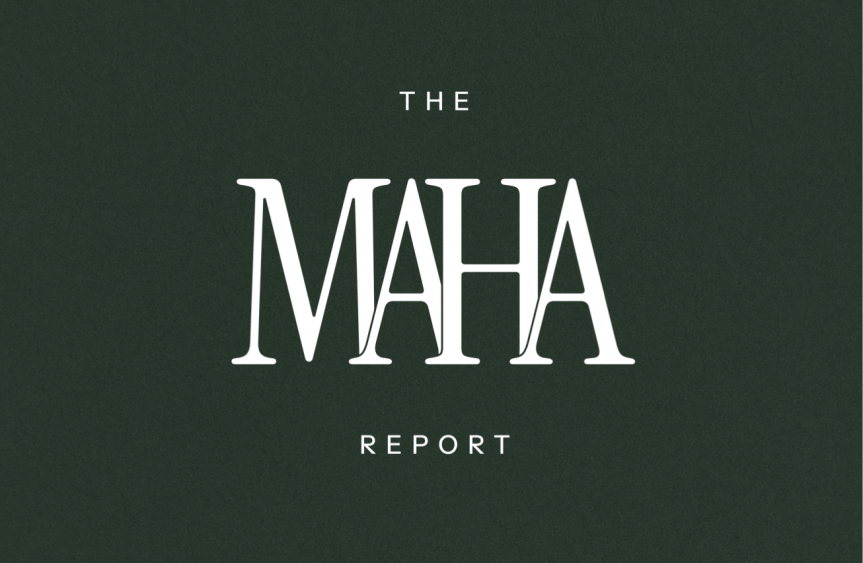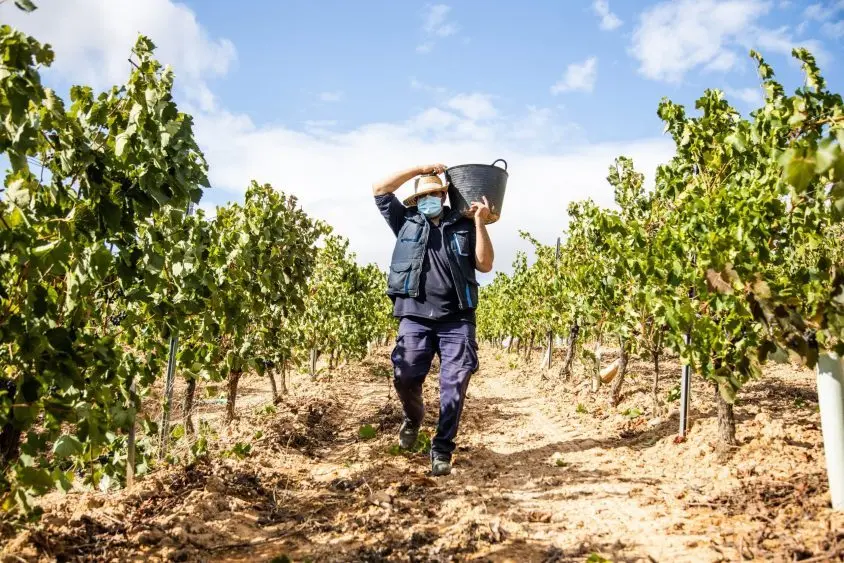
The release of the “Make America Healthy Again” (MAHA) report has stirred significant concern within the U.S. agricultural community. Led by Health and Human Services Secretary Robert F. Kennedy Jr., the report links the rise in chronic diseases among children to factors such as poor nutrition, environmental toxins, and overmedication.
The report addresses concerns about seed oils, particularly soybean and canola oils. Noting their “potential role in inflammation,” the report suggests these oils may contribute to chronic health issues in children.
While the report doesn’t call for an outright ban on seed oils, it emphasizes the need for further research into their health impacts. This stance has drawn criticism from agricultural groups, which argue that extensive research over decades has shown plant-based oils to be low in saturated fats and beneficial for health.
Seed oil research — that the MAHA report claims to be born from a conflict of interest between Food and Drug Administrators and food lobbyists.
The MAHA report cites Conflicts of interest for members of the US 2020 dietary guidelines advisory committee, a study measuring incidence of conflicts of interest (COI) with food and pharmaceutical industry actors on the advisory committee for the 2020-2025 US Dietary Guidelines for Americans (DGA).
Another area of contention within the MAHA report surrounds the research of pesticides and their potential health impacts.
The report states, “Some studies have raised concerns about possible links between some pesticides, herbicides, and insecticides and adverse health outcomes, especially in children, but human studies are limited. For example, a selection of research studies on a herbicide (glyphosate) have noted a range of possible health effects, ranging from reproductive and developmental disorders as well as cancers, liver inflammation and metabolic disturbances.”
The commission also cited concerns over atrazine, another widely used herbicide.
“In experimental animal and wildlife studies, exposure to another herbicide (atrazine) can cause endocrine disruption and birth defects,” the report said.
Despite these concerns, the report pointed to federal monitoring data that showed most exposures remained within safety limits.
“Common exposures include lawn care, farming, and pesticide residues; however, a large-scale FDA study of pesticide residues (2009-2017) found the majority of samples (>90%) were compliant with federal standards. More recent data from the USDA’s Pesticide Data Program found that 99% of food samples tested in 2023 were compliant with EPA’s safety limit,” the report stated.
American Soybean Association President Caleb Ragland criticized the report’s handling of glyphosate research during an interview with American Ag Network.
“Glyphosate, for example, has 167 studies on file with EPA that they have reviewed and have shown 100% of the time to not pose cancer risk,” Ragland said. “It’s very troubling to hear this MAHA Commission cherry pick several poorly designed studies and things that they’ve came up with and piecemeal together to say this is better and this is truth. And all these other studies don’t matter.”
The EPA maintains a comprehensive docket containing all studies, assessments, and related documents on glyphosate. These can be found at regulations.gov, the docket number for Glyphosate is EPA-HQ-OPP-2009-0361.
A 2018 government-funded study published in the Journal of the National Cancer Institute found no clear link between glyphosate use and overall cancer risk.
The Glyphosate Use and Cancer Incidence in the Agricultural Health Study (DOI 10.1093/jnci/djx233) conclusion says “In this large, prospective cohort study, no association was apparent between glyphosate and any solid tumors or lymphoid malignancies overall, including NHL and its subtypes. There was some evidence of increased risk of AML among the highest exposed group though this association was not statistically significant.”
An updated government assessment of common herbicides is scheduled for release in 2026.
The MAHA report acknowledges that past federal reviews have not established a direct connection between these chemicals and adverse health outcomes, but urges more research be done.
The report also expresses concern over the influence of corporate interests in scientific research, particularly studies funded by pesticide manufacturers. It suggests that such funding may lead to biased outcomes, calling for more independent and transparent research to assess the safety of agricultural chemicals.
Producers, particularly those reliant on glyphosate for weed control, express concern that restrictions on such chemicals could lead to decreased crop yields and increased production costs.
“We have a long and consistent track record of producing affordable, healthy, nutritious food that is abundant,” Ragland said. “We have a great amount of choices. We even have enough to help feed our friends around the world who are less fortunate than us. The American farmer produces more than we need here, which we have abundance. You take away the tools that we need in order to do that, and it’s a scary hill that we start tumbling down. We end up with less safe food, we end up with much more expensive food.”
Because the report itself does not propose a new rule or regulation, it’s not subject to the Administrative Procedure Act (APA). So while there’s no legal requirement for public comment, Ragland expected the process to be more inclusive.
“This process was entirely behind closed doors,” Ragland said. “There were multiple requests our organization made and many other agriculture groups to meet and discuss and hear our point of view and our perspective and our research and information. We were denied every single time. One time we were denied as quickly as 18 minutes from when we made the request. So there was no desire to hear anything from the production agriculture point of view it seems.”
In a statement responding to the MAHA report, National Farmers Union President Rob Larew emphasized the importance of including farmers in policy decisions related to health and food systems.
“Farmers are key partners in building a healthier food system. But meaningful progress requires that farmers have a seat at the table. Disregarding the expertise of respected regulatory bodies and leaving farmers out of the conversation undermines public trust and puts the future of American agriculture and rural economies at risk. We urge the administration to include the voices of family farmers and ranchers as they continue this work and to ensure that solutions are rooted in sound science, fairness and transparency,” Larew said.
While Kennedy stated the report isn’t intended to harm the agricultural sector, ag groups argue the 68 page document could unfairly portray farmers as contributors to health problems.
The International Fresh Produce Association (IFPA) issued a statement imploring the administration to expand access to fruits and vegetables while supporting evidence-based nutrition policies and empowering growers.
“With nine in ten Americans not meeting fruit and vegetable consumption targets and up to half of children under age five not consuming a vegetable daily, the Commission must focus on evidence-based interventions that will increase fruit and vegetable consumption and support policies that ensure the prosperity of U.S. growers who dutifully provide an abundance of fresh fruits and vegetables for Americans every day,” IFPA’s statement said.
House Committee on Agriculture Chairman Glenn “GT” Thompson (R-PA) and Senate Committee on Agriculture, Nutrition, and Forestry Chairman John Boozman (R-AR) issued the following statement after the release of the MAHA Commission initial assessment:
“We share President Trump’s vision for a healthier nation; however, we are troubled by the initial findings of the MAHA Commission Assessment and their impact on America’s farmers and ranchers,” the statement said. “As we engage in this important dialogue, we must move forward in a manner that avoids undermining the very systems that allow American farmers to produce the safest, most abundant, and affordable food in the world. It is imperative that we do not stray from the risk-based and scientific processes set forth by Congress. The Commission’s success will center upon course-correcting to prioritize sound science, peer-reviewed research, and the buy-in of the agricultural community.”
During the White House release of the study, President Donald Trump praised American farmers and reiterated their political support.
“I have to say we have the greatest farmers in the world, and we love our farmers, and we want to pay respect to our farmers, and we always will,” he said. “And we won the farmers by a lot in the election, in all, every election, all three elections, and we won by a lot. And I will never forget that, and they are foremost in our thought.”
Secretary of Agriculture Brooke Rollins emphasized that making “American agriculture great again” is key to the MAHA initiative.
“At the center of this discussion, we have the most robust, the safest, the best agriculture system in the world. And in partnership with the amazing Secretary Kennedy and all of these incredible patriots sitting around this table, under the leadership of the extraordinary President Donald J. Trump, we will make America healthy again,” Rollins said.
Kansas Senator Roger Marshall said producers are committed to safe agriculture practices.
“They’re making the soil healthier. They’re using less pesticides. They’re doing all the right things. It’s going to take a little bit more effort and time to get everybody with those practices, but the American farmer and rancher were the original environmentalists, the original conservationists, and they’ll be right here working beside us, and we appreciate your support of them as well,” he said.
The MAHA Commission had approximately three months to conduct its initial research and compile findings following an executive order signed by President Trump in February 2025.
This rapid timeline has drawn scrutiny from agricultural and scientific communities who argue that the depth of claims made—especially regarding pesticides, seed oils, and processed foods—requires more extensive peer-reviewed research.
The MAHA Commission is expected to release specific policy proposals in August 2025.



